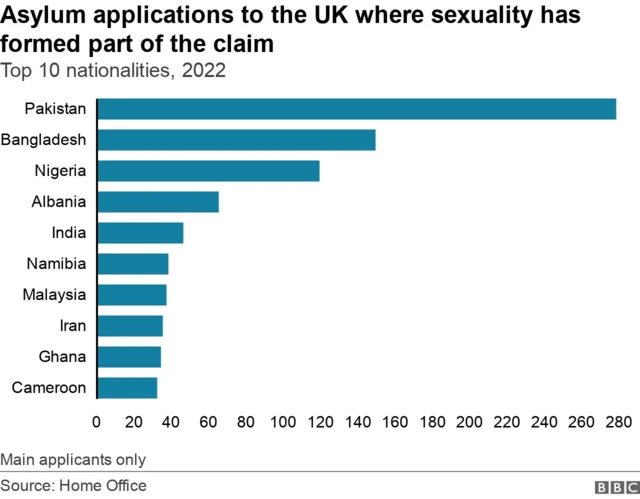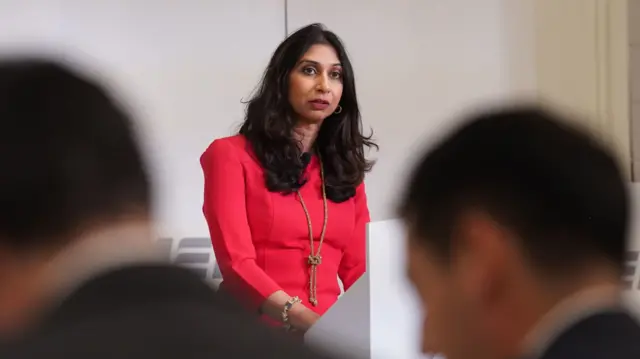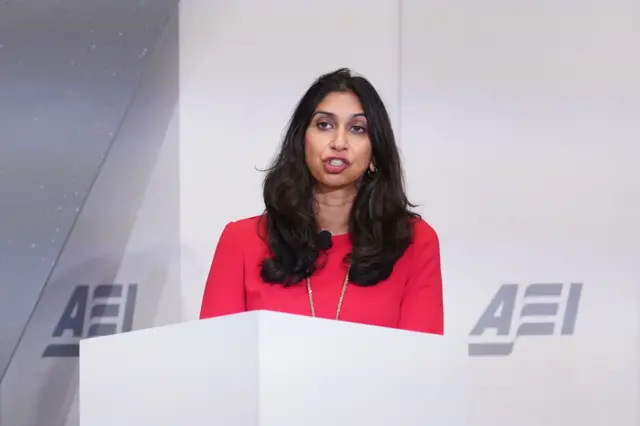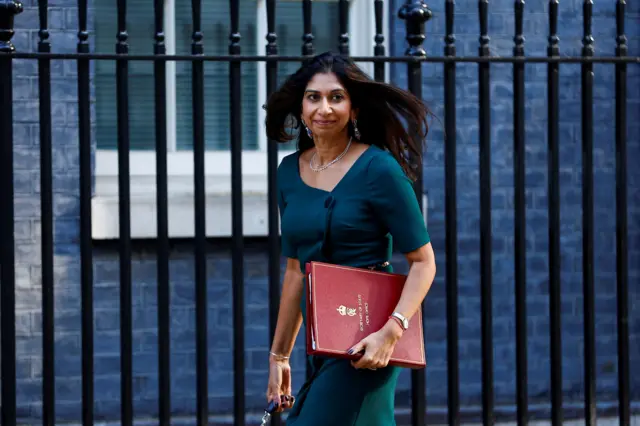
How many people claim UK asylum based on sexual orientation?published at 15:58 BST 26 September 2023
Braverman has just said it's unsustainable to have an asylum system where "simply being gay ... is sufficient to qualify for protection”.
In 2022, there were 1,334 asylum applications lodged in the UK, external, where sexual orientation was part of the basis for the claim.
This represents 1.5% of 74,751 asylum claims made last year.
The top countries of origin were Pakistan, Bangladesh and Nigeria. In all three countries consensual same-sex sexual acts are illegal.
They are punishable by life imprisonment and, in some parts of northern Nigeria, by death (according to The International Lesbian, Gay, Bisexual, Trans and Intersex Association, external).
However, sexual orientation may not be the only grounds on which the asylum applications were made - and we don't know whether it influenced the outcome.
 Image source, .
Image source, .





